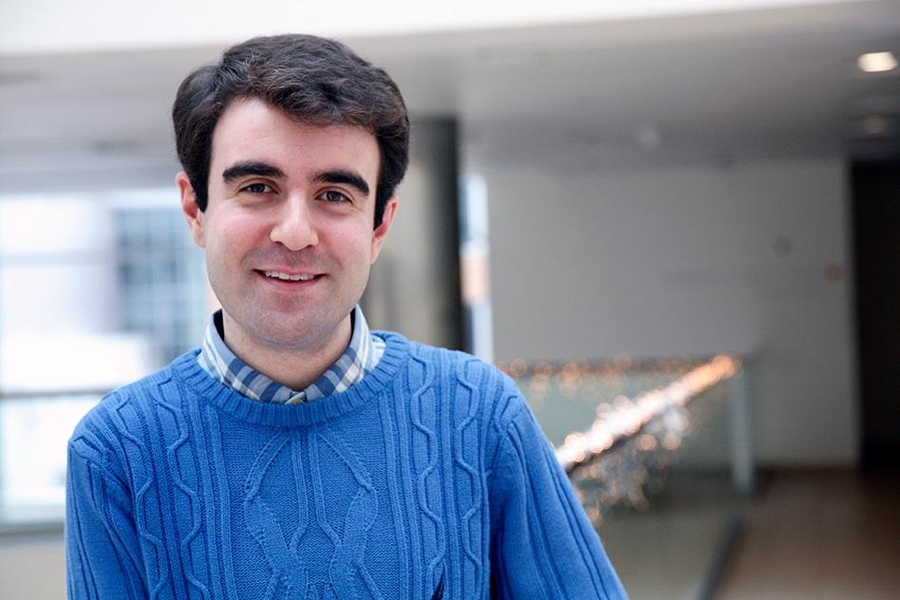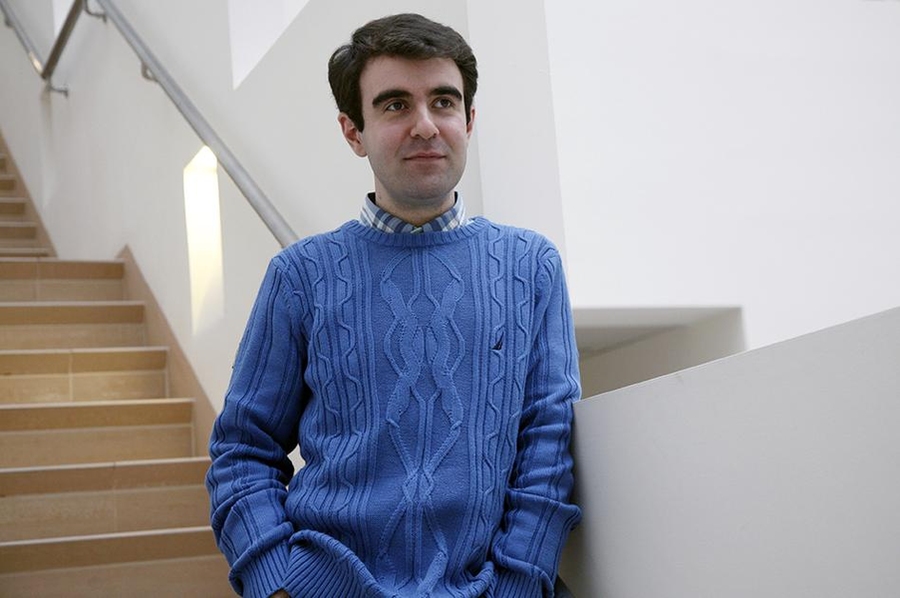John Mikhael sees three fields as key to understanding the brain: math, neuroscience, and medicine. “If you want to understand how the brain works, combining those three is a great way to get there,” he says.
Mikhael, who graduated from MIT in June with a bachelor’s degree in mathematics, plans to pursue his study of neuroscience next fall when he enters an MD/PhD program at Oxford University with a Rhodes Scholarship.
“Neuroscience is a very exciting field,” he says. “In many ways, the brain is the most sophisticated computer out there. Our brains can do things effortlessly that we couldn’t even dream of teaching computers how to do, like producing language, understanding social cues, or recognizing faces with our level of proficiency.”
“We can identify clouds that look like ponies — computers can barely even identify ponies that look like ponies,” Mikhael adds. “Neuroscience can inform medicine, computer science, and machine learning. From there, it’s hard to think of a field it can’t benefit.”
Between two worlds
Born in Dallas to a family of Lebanese and Syrian descent, Mikhael grew up as a typical American kid until third grade, when his parents decided to move back to Lebanon. Arriving in his new home outside Beirut, Mikhael felt some culture shock, but it was mitigated by the fact that so many Lebanese were familiar with American culture, which at the time was all he knew.
“Everybody knows how to talk to an American, a lot of people speak English there, and everybody watches ‘Friends,’” Mikhael says. “But there were small elements here and there that struck me as very different,” he recalls.
From large differences such as focus on family values versus focus on individuality, to smaller things like older men and women constantly giving him wet triple-kisses on the cheek, it took Mikhael a while to get used to his new environment, but eventually Lebanon started to feel like home.
In April, Mikhael won MIT’s Isabelle de Courtivron Prize for an essay about his experiences growing up in two different cultures and trying to figure out where he fit in. After he won the Rhodes, many more people read his essay and he started hearing from people around the world. “I was getting emails from people in Indonesia who said, ‘I completely identify with what you wrote, and here are my reasons why.’ It’s very nice,” Mikhael says.
Pursuing research, advancing humanity
As a high-school student, Mikhael was already determined to pursue a career in scientific research. To do that, he believed that he needed to return to the United States, and he singled out MIT as his top choice.
“I wanted to go to a place that really cares about research and cares about advancing humanity. Once you say those two words, MIT comes to mind. That’s why I applied here.”
Mikhael ended up majoring in mathematics with a minor in chemistry. What drew him to math is the elegance of sitting down with a piece of paper and a pen and coming up with a new way to tackle a problem.
“At the end of the day you can forget formulas, and you can forget the theorem that you learned last year, but in learning the theorem, you learned how to sharpen the way you think, and that’s one of the big attractions of math,” he says.
His courses in chemistry also taught him a great deal about analytical thinking, but with physical materials instead of numbers. “It’s nice to know how science works, and that’s something that you don’t really get as a mathematician,” he says.
When not in the lab or working on math proofs, Mikhael spent his undergraduate years volunteering for Habitat for Humanity; working with MedLinks, an MIT student group that supports undergraduate health and well-being; and participating in interfaith discussions as an Addir Interfaith Fellow. He also likes to relax by playing table tennis, a sport he played competitively in high school.
Probing the brain
In his future career, Mikhael hopes to use his mathematical and analytical skills to probe the inner workings of the human brain — a subject that has fascinated him since high school.
This year he is working at MIT’s McGovern Institute for Brain Research in the lab of Nancy Kanwisher, the Walter A. Rosenblith Professor of Brain and Cognitive Sciences, studying how the brain makes judgments and predictions concerning physical phenomena. The brain can easily predict in which direction a leaning tower will fall, or the path of a ball flying in a parabola, or how two colliding objects will interact, but neuroscientists don’t know how the brain does this.
Mikhael plans to continue studying this problem in graduate school at Oxford, taking a computational approach. “It’s starting to look like a big math problem, and that’s how I want to tackle it,” he says.
Rhodes Scholar John Mikhael, who calls both the U.S. and Lebanon home, is also comfortable in many scientific fields.
Publication Date:
Press Contact:

Caption:
John Mikhael
Credits:
photo: allegra boverman

Credits:
photo: allegra boverman





